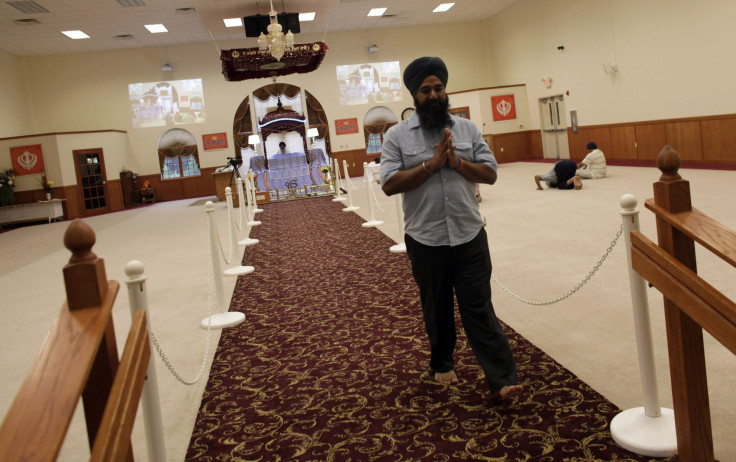FBI Updates Hate Crime Guidelines; Will Track Violence Against Sikhs, Hindus, Arabs

The U.S. Department of Justice will begin tracking hate crimes against Sikhs, Hindus and Arab-Americans for the first time, following the release this week of new FBI guidelines for tracking bias-motivated criminal offenses. Sikh-American groups praised the move. They have been pushing for the new tracking category, particularly since a 2012 attack on a Wisconsin Sikh temple that left six dead.
The FBI’s updated manual “marks a step toward ensuring accurate reporting of hate crimes committed against Sikhs, an important step that will ultimately aid the Sikh community as we continue to address the roots of anti-Sikh bias,” said Jasjit Singh, executive director of Saldef (Sikh American Legal Defense and Education Fund), an advocacy organization, adding that the reform was one that the Sikh community had sought for five years.
The Justice Department had announced plans to begin tracking hate crimes against the minority groups in 2013 after civil rights organizations argued that the nation's law enforcement agencies were not adequately monitoring bias incidents against Sikhs, Hindus and Arabs. While there have been several instances of anti-Sikh violence across the country in recent years, a white supremacist attack that left six Sikh worshipers dead at an Oak Creek, Wisconsin, temple in August 2012 put the national spotlight on hate crimes against the community and sparked widespread calls for better protections.
Part of the problem activists pointed to was that most cases of violence against American Sikhs were classified as anti-Muslim hate crimes because many Americans typically mistake Sikh males, who often wear turbans and beards, for Muslims. As a result, the level of discrimination that the community faces is largely obscured.
“The legacy of anti-Sikh violence and its contemporary prevalence make it painfully obvious that anti-Sikh violence is often purposeful and targeted,” Sikh activists Simran Jeet Singh and Prabhjot Singh wrote in the New York Times following the Oak Creek attack. “The government must begin tracking and counting anti-Sikh hate crimes, just as it must continue to vigorously combat bias and discrimination against all Americans, including Muslims. We must do away with a flawed and incomplete assumption of ‘mistaken identity’ regarding Sikhs.”
The updated FBI hate crime data collection guidelines manual includes new definitions and training scenarios to help law enforcement officials identify and report crimes against Sikhs. "For the first time, the FBI now officially acknowledges that Sikhs are targeted for being Sikhs. While refinements are needed to the agency's tracking system and training standards, we are making progress," said Rajdeep Singh, director of law and policy at the Sikh Coalition.
Since the Sept. 11, 2001, terrorist attacks, the Justice Department has investigated more than 800 incidents involving violence, threats, assaults and vandalism targeting Muslims, Sikhs, South Asians and others perceived to be members of these groups. Surveys conducted by the Sikh Coalition also show that violence and discrimination against the Sikh community remain serious problems, with significant percentages of respondents reporting bias-motivated bullying and violence.
© Copyright IBTimes 2024. All rights reserved.












